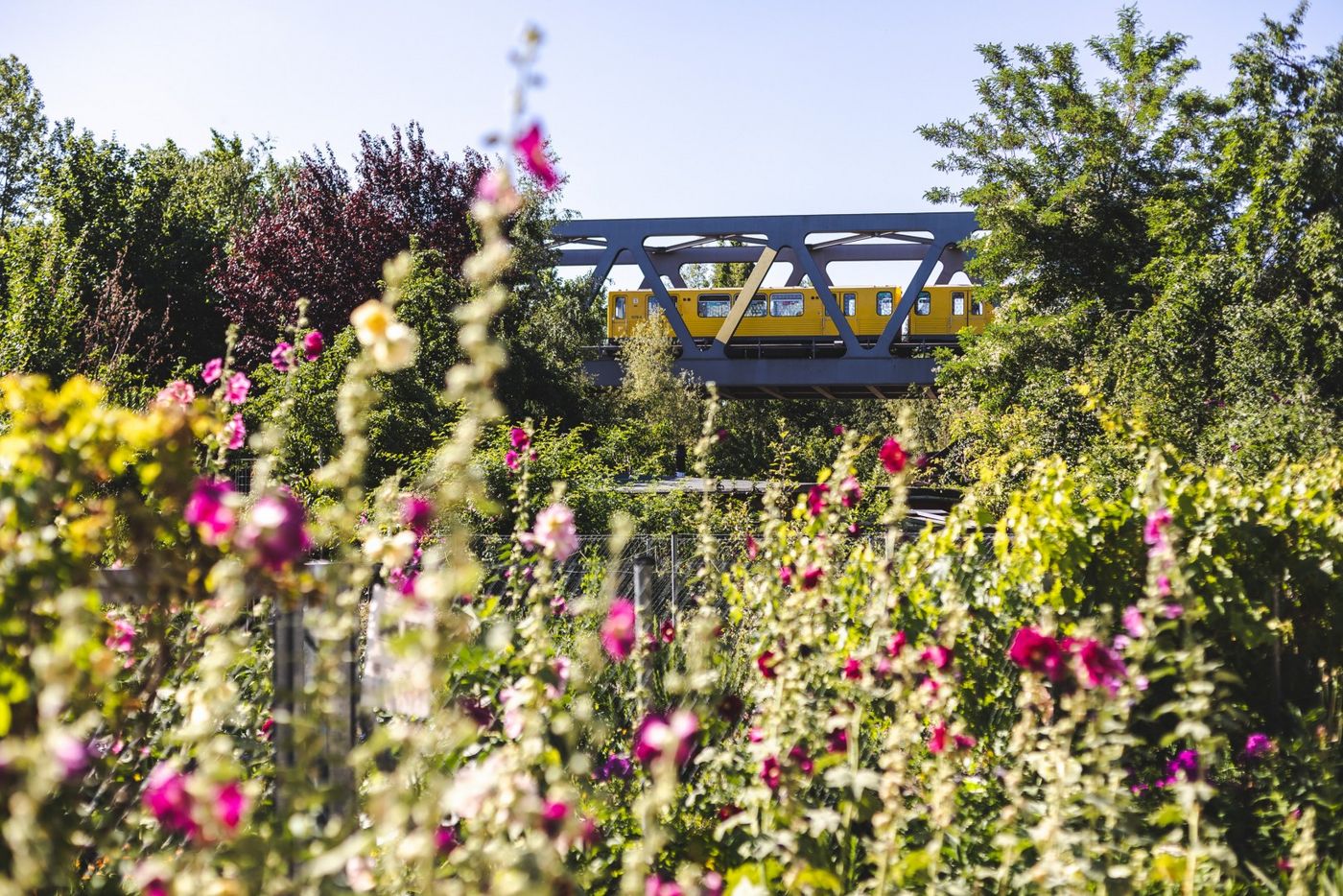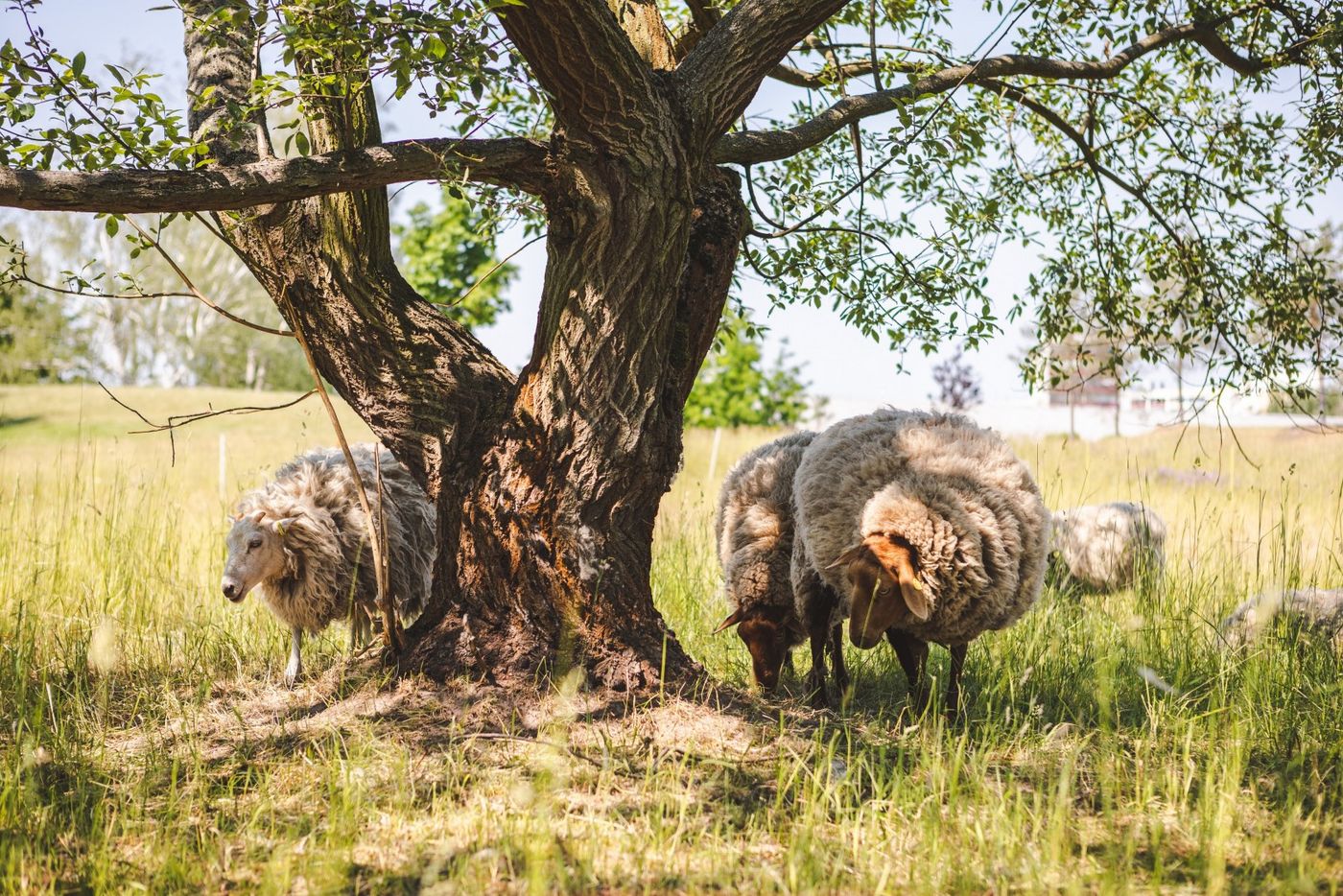
Parks
Ecosystem benefits of urban parks
As part of the GartenLeistungen project funded by the German Federal Ministry of Education and Research (BMBF), Grün Berlin is recording and evaluating the ecosystem services of parks and generating knowledge for sustainable urban land use.
Parks, green spaces and urban gardens are important for the urban climate, biodiversity and quality of life in cities. The many functions of urban green spaces are summarised under the term ecosystem benefits. These include:
- ● supporting services (soil formation, nutrient cycling)
- ● providing services (provision of food, wood, biomass, drinking water)
- ● regulating services (climate regulation, water retention, air pollution control)
- ● cultural services (health, well-being, aesthetics)
About the project
Despite their great contribution towards an inhabitable city, parks and urban gardens often compete in practice with other land uses. The BMBF-funded project GartenLeistungen (2019-2022) is therefore investigating how the many ecosystem services provided by urban parks and gardens can be systematically recorded and incorporated into policy decisions. In the project, eleven partners from science, practice and administration are conducting research in the model cities of Berlin and Stuttgart.
Within the framework of the project, Grün Berlin is conducting two real laboratories in Park am Gleisdreieck and in Kienberg Park and is supporting the transfer of the research results to politics and administration.
Reallabs
Reallabs are a new format of citizen participation in which the focus is on specific participation in practice. They are specially created experimental spaces and offer a place to try out and develop ideas for dealing with central challenges in parks, such as increasing pressure of use or climatic changes.

Reallabor Gleisdreieck – a place for people and animals to stay
The Reallabor will focus on the topics "increasing pressure of use" and "effects of climate change". Future real-world experiments will therefore develop and test actions to improve the quality of stay in the park. The goal is to positively influence the long-term maintenance of ecosystem services. Examples of collaborative actions may include nature observation, "litter picking", and watering activities.

Reallabor Kienberg Park – live and let live in forest and meadow
Under the umbrella of the Reallabor, existing activities in the fields of "nature conservation and nature observation" and "healthy and sustainable nutrition" are to be pooled and expanded. The aim is to strengthen the interplay between local actors. For example, tree planting campaigns, community harvesting and gardening projects can contribute towards the promotion of ecosystem services.
Transfer of research results to the administration
To ensure the transfer of research results into practice, Grün Berlin is also involved in establishing a regular exchange with the municipal administration. To this end, the Grün Berlin team is in regular contact with the Senate Department for the Environment, Transport and Climate Protection in Berlin (SenUVK) and the Office for Urban Planning and Urban Renewal in Stuttgart. These two institutions are partners in the GartenLeistungen project on behalf of the municipal stakeholders. The goal is to further develop urban planning and management approaches so that the ecosystem services of urban parks and gardens can be even more strongly considered in political decision-making processes.